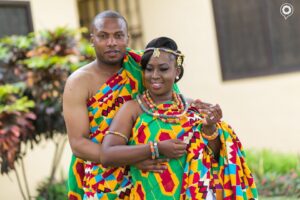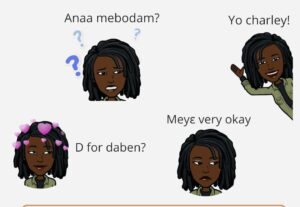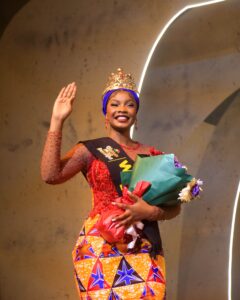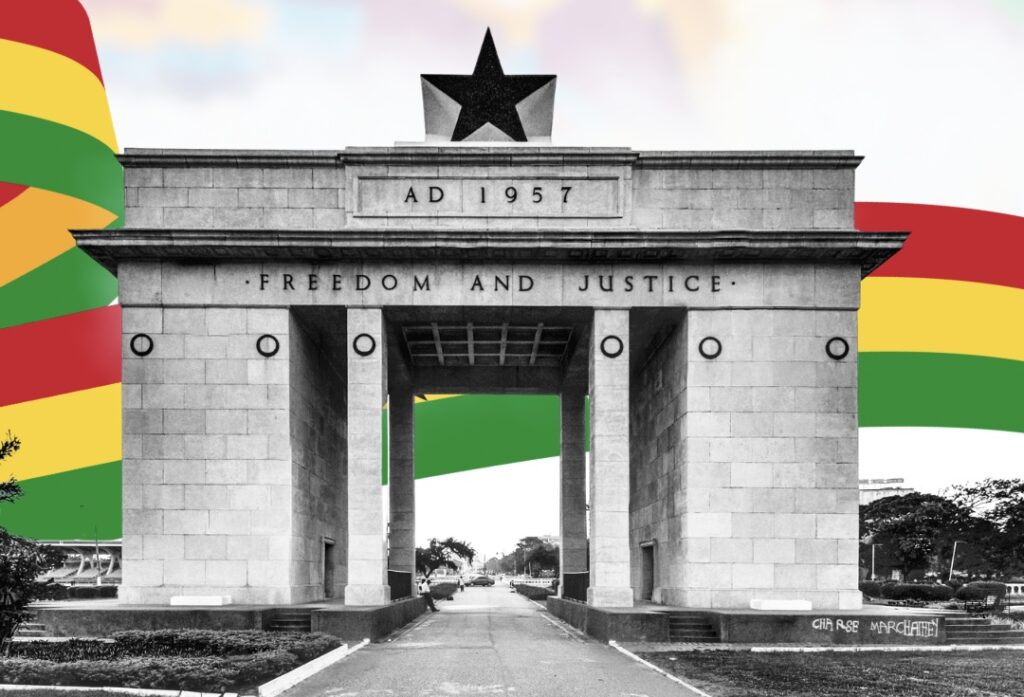
Photo Credit: Canva (White Illustrative Ghana Independence)
There is an adage in the Akan language that goes, “Sɛ innyim wo kurom hen n’abɛntsia a eyew bagua ase,” which translates to, “If you don’t know the sound of your Chief’s ivory horn, you get lost at gatherings.” In line with this wisdom, the question arises: Will translating the Ghana National Anthem into various Ghanaian languages play a crucial role in fostering a deeper sense of patriotism among citizens?
In this article, “various Ghanaian languages” refers to the 15 languages with educational status according to the Language Policy of Education in Ghana. These languages include Asante Twi, Gonja, Fante, Akuapem Twi, Nzema, Dagaare, Kusaal, Kasem, Dagbani, Sisaala, Lekpakpaal, Ga, Dangbe, Ewe, and Gurune While it could be argued that other Ghanaian languages also deserve recognition despite their minority status, the challenge lies in the availability of written resources and linguistic expertise. Nevertheless, some of these minority languages, including Ahanta and Bono, are gradually making progress in written form.
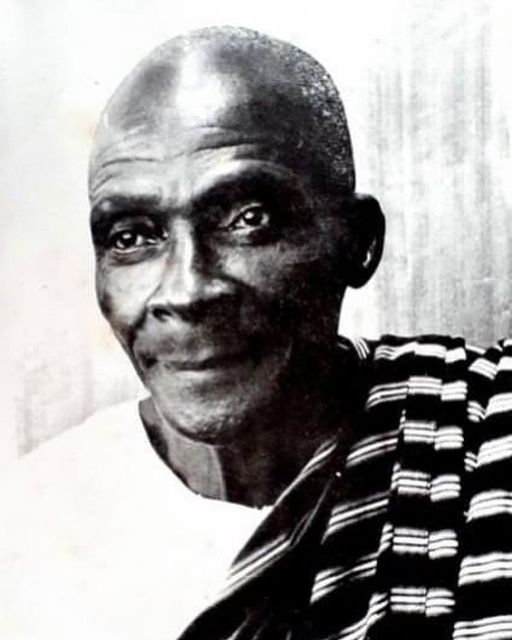
The history of Ghana’s national anthem is well-known to Ghanaians, as there is already a version composed in Akan (Akuapem Twi). The late Dr. Ephraim Amu, a legendary Ghanaian composer, created one of Ghana’s national anthems, “Yɛn Ara Asaase Ni,” which has been sung and continues to be sung in schools across the various Akan states. Students in non-Akan states like Ga, Dangbe, and Ewe also had translated versions of the anthem in their respective languages.
In a recent Facebook post by Ghana’s national television station GTV, during their morning program “Breakfast Show,” the host Kafui Dey had a linguist sing the national anthem “God Bless Our Homeland Ghana” in Fante during a discussion on translating the anthem into eleven Ghanaian languages. This sparked a demand from netizens for the national anthem to be translated into all Ghanaian languages.
Netizens who engaged with the post offered a range of suggestions regarding the translation and usage of the national anthem. Some proposed that each language community should have its own national anthem in their respective languages. Others argued that translating the anthem into various local languages could foster a greater sense of patriotism, as it would be sung in the people’s native tongues. They emphasized the need for the government to act swiftly on such an initiative to strengthen national unity and pride.
As this topic has already become a matter of public discussion, could there come a time when the national anthem will be translated into all the various Ghanaian languages, as has been done with Fante? Is this the right call? Share your thoughts. Let’s get interactive on our social media platform.
Author: Ebenezer Kobinah Offen
Editor: Ama Gyesiwaa Quansah


